This year, the Wharton School of the University of Pennsylvania and the BAV Group joined forces to come up with a list of the best countries to live in. Their study questioned over 17,000 global citizens from across four regions for assessing the perception of at least 78 countries on 77 different metrics.
Based on their assessments on quality of life, here is a list of the top ten countries in the world to live in. Read on to know the different aspects that make these nations so attractive for the people and families seeking residence from across the globe.
What You’ll Find in This Article:
Chief Factors that Make a Country Comfortable for Foreigners
Tips for Choosing the Best Countries to Move To
1. Canada
2. Denmark
3. Sweden
4. Norway
5. Switzerland
6. Australia
7. Netherlands
8. Finland
9. Germany
10.New Zealand
The Endnote on Countries With Best Quality of Life
Chief Factors that Make a Country Comfortable for Foreigners
There are several factors that can contribute to making a country comfortable for foreigners. Some of these include:
- Political stability and safety: A stable and secure political environment can be important for foreigners looking to settle in a new country. Such an environment involves low crime rates, a reliable legal system, and a government that’s not prone to instability or unrest.
- Economic opportunities: Access to job opportunities, a strong economy, and a high standard of living can be attractive to foreigners looking to relocate. Affordable housing and good healthcare services are also essential factors.
- Cultural openness and acceptance: A welcoming and diverse cultural environment makes it easier for foreigners to integrate and feel at home. A society that values and respects diversity and provides opportunities for social interaction and community involvement can make a country more comfortable for foreigners.
- Language and communication: Countries where English is widely spoken or where there is a willingness to communicate in different languages can be more comfortable for foreigners. Access to language classes and resources can also be of great importance.
- Ease of obtaining visas and permits: A clear and straightforward process for obtaining visas and residency permits can make it easier for foreigners to settle in a new country without experiencing significant bureaucratic hurdles.
- Infrastructure and transportation: Access to modern infrastructure, including reliable public transportation, can make a country more comfortable for foreigners.
Tips for Choosing the Best Countries to Move To
Many people wonder, “what is the best country to live in?” There are many factors to be considered to make a solid decision as to the country you’ll be calling your new home.
This section provides quick tips for choosing the best countries to move to, to help you make the right decision for your needs and make the most of your international relocation.
| Quality of Life |
Cost of Living |
Job Opportunities |
Visa Requirements |
Healthcare System |
Safety |
Schools |
| Consider the overall quality of life in the country, including the economy, climate, culture, and work-life balance. | Research the cost of living in the country to ensure it is affordable. | Consider what job opportunities are available, and the ease of obtaining a work permit for non-natives. | Learn about the visa and permit requirements for living and working in the country. | Research the quality of the healthcare system in the country. | Consider the country’s safety record, especially if planning to live there long-term. | If you have children, research the education options and quality of the school system in the country. |
Top Countries To Live in
Choosing the right country to live in can be a daunting task, with numerous factors to consider.
This section provides a list of the top countries to live in based on various factors, to help make such an important decision easier. From the best places to live in the world to countries with best quality of life, the following list provides valuable insights for those seeking a new home.
Each country’s unique offerings, culture, environment, and infrastructure will be explored to assist you in making an informed decision on where to relocate. Whether you are searching for a bustling city life or a more laid-back lifestyle, this list of the best countries to live in can serve as a helpful starting point for your search.
1. Canada
Canada has a stronger appeal to the digitally-minded, a younger generation, and white-collar employees because of the strong digital services and tech scene. It’s an industrial society with a higher living standard. It ranks third in this world in terms of proven oil reserves and fourth in oil production.
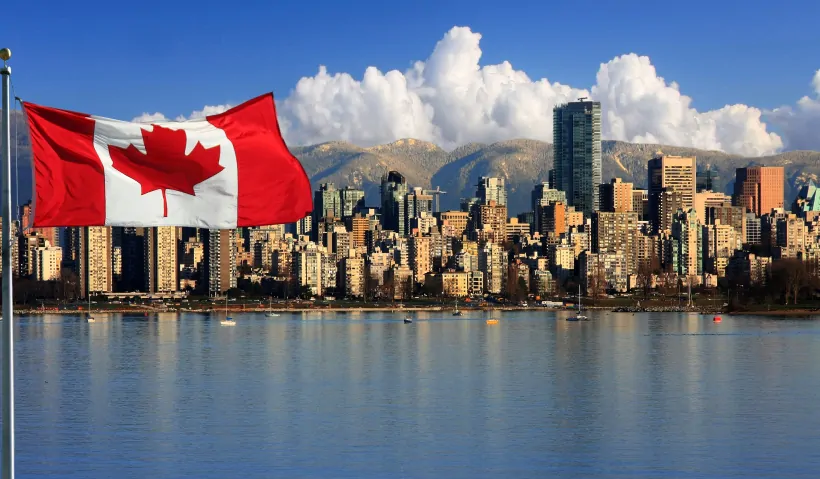
Quality of Life
There are several benefits of moving to the country, and several of them will appeal specifically to young families trying to settle down. Such perks include free public secondary education, free universal healthcare for permanent residents, low air pollution, and a higher degree of public safety. Canada Startup Visa and booming startup scene is another incentive that draws many talents into the country.
Cost of Living
The cost of living in Canada can vary significantly depending on the city or region you’re living in. However, the estimated monthly costs for a single person add up to around $925, rent excluded. Generally, major urban areas like Toronto and Vancouver have a higher cost of living than smaller cities or rural areas. Housing, particularly in these larger cities, can be expensive. However, healthcare, education, and social services are generally considered to be of high quality and more affordable than in many other countries. It’s important to note that the cost of living in Canada also depends on your lifestyle, with factors like transportation, food, and entertainment costs varying widely.
Healthcare
Canada is one of the best countries to live in because of the availability of universal healthcare. In fact, in some provinces, private healthcare is completely banned.
Education
The nation also ranks among the top ten countries across the world in terms of receiving state education. Also, it is among the top nations for science, math, and reading courses. Moreover, children growing in Ontario and Quebec can get an education in English and French.
Canada: Quality of Life Attributes
| Score over 100 | |
| A good job market | 100 |
| Affordable | 7.7 |
| Economically stable | 99.9 |
| Family-friendly | 99 |
| Income equality | 61.6 |
| Politically stable | 100 |
| Safe | 96.7 |
| Public education system | 97.8 |
| Public health system | 95.9 |
2. Denmark
Along with Norway and Sweden, Denmark forms a cultural part of Northern Europe called Scandinavia. The capital of Denmark, Copenhagen, is the hub that connects Northern Europe with the world.
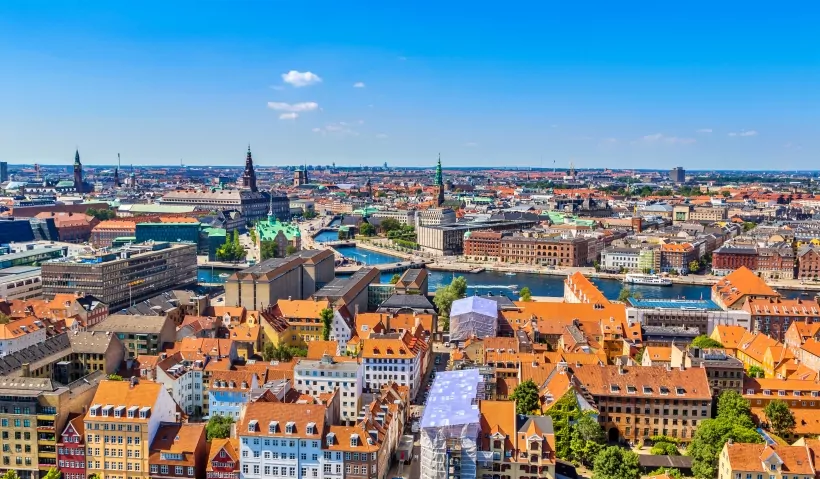
Quality of Life
One of the most impressive parts of Denmark is income equality. Also, the country is pretty politically stable and safe for living in. A well-developed public health and education system further improves the quality of life in the country.
Cost of Living
The cost of living in Denmark is generally high compared to many other countries. For a single person, the estimated monthly costs are around $1,100, rent excluded. Accommodation is one of the largest expenses, particularly in cities like Copenhagen. However, Denmark offers free high-quality healthcare, education, and social services to all residents. Food and transportation costs can also be relatively expensive, but Denmark offers a high standard of living with excellent public transportation, bike-friendly infrastructure, and a strong focus on sustainability.
Healthcare
The citizens in Denmark have free, equal, and universal healthcare services. Free healthcare in the country is funded through tax money. All the citizens can gain equal access to their choice of hospital, diagnosis, and treatment under affordable health insurance.
Education
In Denmark, education is compulsory for all kids below the age of 15 or 16, though attending public school is not compulsory. Public education is free and open for all children. The education system is one of the contributors that make Denmark one of the best places to live in.
Denmark: Quality of Life Attributes
| Score over 100 | |
| A good job market | 61.6 |
| Affordable | 0.4 |
| Economically stable | 89 |
| Family-friendly | 91.5 |
| Income equality | 100 |
| Politically stable | 96.9 |
| Safe | 97.5 |
| Public education system | 97.7 |
| Public health system | 97.8 |
3. Sweden
The beautiful country of Sweden, with the Baltic Sea to the east and Norway to the west, expands across a major part of the Scandinavian Peninsula. It is one of the largest countries by landmass in the European Union. Centuries of neutrality in war and continued commitment to civil rights also make it one of the best places to live in the world.
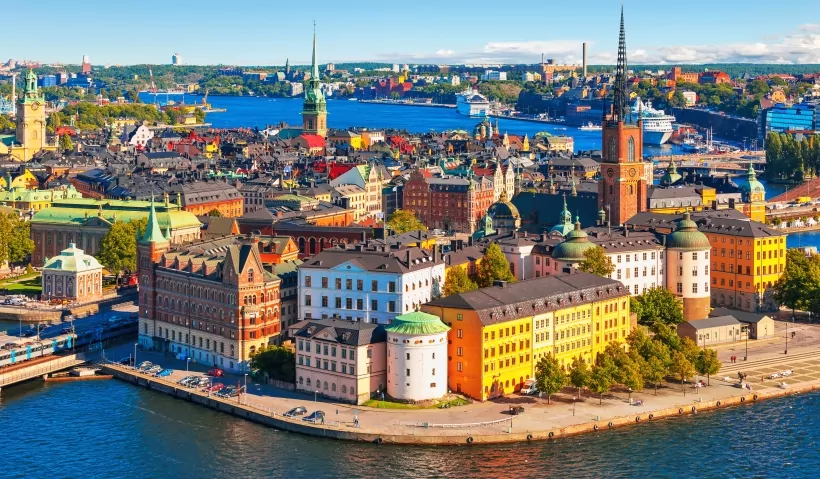
Quality of Life
Two metrics of quality of life, i.e., the public health system and public education system are of the finest quality in Sweden. It is also politically and economically stable as a nation, which makes young couples and employees keen on settling down here.
Cost of Living
The cost of living in Sweden can vary depending on the location and individual lifestyle. For a single person, the estimated monthly costs are around $900 without rent.
Housing is one of the biggest expenses, especially in major cities like Stockholm and Gothenburg, where a single-bedroom apartment in the city center costs around $1000-1500. However, healthcare, education, and social services are free for all residents and of high quality. Sweden also has a strong focus on sustainability, and public transportation is efficient and affordable. While food and alcohol can also be relatively expensive, Sweden offers a high standard of living with a strong social safety net.
Healthcare
Swedish citizens get a decentralized universal healthcare system. The health policy and related budget are dictated by the Ministry of Health and Social Affairs. The twenty-one regional councils fund health expenditure through their tax funding.
Education
As per the Swedish Education Act, children have to go to school for a minimum of 10 years from the time they turn six. The country’s keen focus on universal education is praised all over the world.
Sweden: Quality of Life Attributes
| Score over 100 | |
| A good job market | 51.7 |
| Affordable | 2 |
| Economically stable | 94.5 |
| Family-friendly | 93.5 |
| Income equality | 83.3 |
| Politically stable | 95.4 |
| Safe | 93.3 |
| Public education system | 100 |
| Public health system | 100 |
4. Norway
Norway is the westernmost country in the Scandinavian peninsula, which is made up of mostly hills and mountains. Most of the country’s population stays in the south, in the region surrounding the capital city of Oslo. The breathtaking coastline has island shores, bays, and fjords spanning thousands of miles.
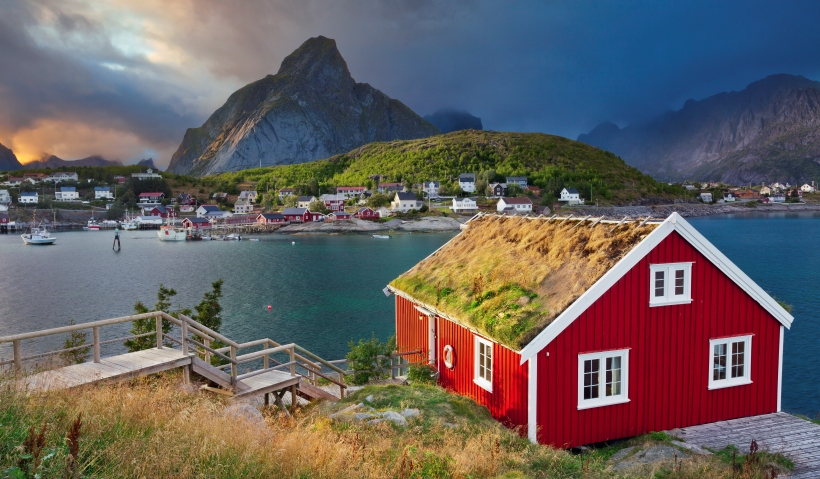
Quality of Life
The safe environment and continued political stability make Norway a great place to reside. Though the country is not known for being affordable, it has a well-managed public education and health system. It is a family-friendly nation that has a fairly good job market.
Cost of Living
Norway is considered one of the most expensive countries to live in. For a single person, the estimated monthly costs are around $900. Housing, food, and transportation are the main expenses, with housing being the largest. However, Norway offers a high standard of living with excellent social services, including free healthcare and education. The country also has a strong focus on sustainability and environmental conservation. While the cost of living in Norway may be high, the quality of life, safety, and access to social services are highly valued by residents.
Healthcare
Norway does not offer free healthcare. All residents need to pay for all kinds of medical treatments. But there is an annual limit on medical expenditure. After a person reaches that limit, they get an exemption from medical costs for the rest of the year.
Education
Norway strongly believes that each person should gain access to education irrespective of their socio-economic background. Thus, attending all public universities in Norway is free.
Norway: Quality of Life Attributes
| Score over 100 | |
| A good job market | 47.6 |
| Affordable | 1.7 |
| Economically stable | 92.5 |
| Family-friendly | 92.3 |
| Income equality | 87.1 |
| Politically stable | 95.9 |
| Safe | 97.1 |
| Public education system | 94.6 |
| Public health system | 91.2 |
5. Switzerland
Switzerland, officially known as the Swiss Confederation, is a small Central European country made up of the snowy Alps, valleys, and lakes. Not only is it one of the wealthiest countries in the world, but is also known for holding its neutrality for centuries.
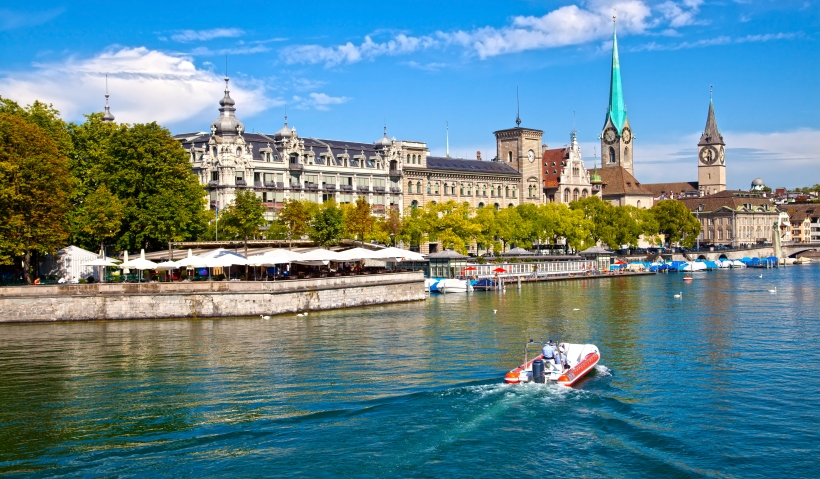
Quality of Life
The low unemployment and the high gross domestic products per capita make Switzerland the best place to live in. The strong economy gets powered by a highly advanced service sector and low corporate tax rates, along with a high-tech manufacturing sector.
It is also possible to apply for Swiss Golden Visa.
Cost of Living
Switzerland is known for its high standard of living, but this comes at a cost. The living expenses in Switzerland are generally higher than in many other European countries, particularly in terms of accommodation and food. Rent for a one-bedroom apartment in a city center can cost around $1,800 per month, but it’s possible to find apartments with rents around $1,500 per month outside of the city center. Overall, the monthly cost of living in Switzerland for a single person is around $1,600, rent excluded.
Healthcare
Healthcare is universal here and the Swiss Federal Law on Health Insurance regulates it. Though healthcare is pretty well-developed, there are no free state-funded health services. But private health insurance is mandatory for all Swiss residents.
Education
Most students in the country complete their 11 years of compulsory education at the state school in their resident municipality. Only five percent go to a private school. Switzerland has some of the most expensive and finest private schools in the globe, right from kindergarten to university.
Switzerland: Quality of Life Attributes
| Score over 100 | |
| A good job market | 55.9 |
| Affordable | 0.4 |
| Economically stable | 98.7 |
| Family-friendly | 90.3 |
| Income equality | 56.5 |
| Politically stable | 100 |
| Safe | 100 |
| Public education system | 98.3 |
| Public health system | 95.5 |
6. Australia
Australia is one of the world’s most multicultural countries, with the world’s oldest continuously existing culture. It has a highly competent workforce as well as a long history of democratic governance and stability. The economy is strong and open. Australia has a population of 25 million people from around 200 nations.
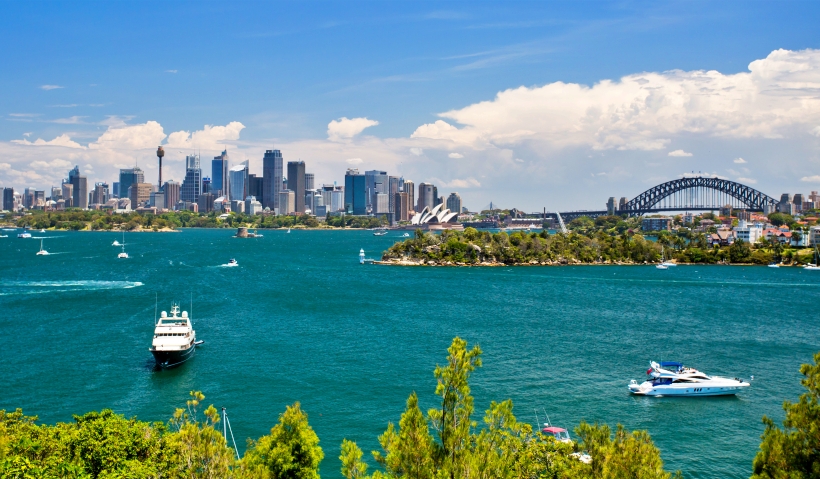
Quality of Life
It is a wealthy nation that has a market-based economy with a high per capita income and high gross domestic product. The service sector drives the economy and the export details. Australia has a higher participation rate in sporting activities and a higher life expectancy for both males and females.
Cost of Living
The cost of living in Australia is typically high compared to many other countries. For a single person, excluding rent, monthly expenses are around $1,050. However, the cost of rent can vary greatly depending on location. Rent for a single-bedroom apartment in the city center can cost around $1,500, while prices may be slightly lower outside the center. Despite the higher cost of living, Australia is still considered an attractive destination due to its high standard of living, diverse culture, and a strong economy.
Healthcare
The system is divided into two parts – the private health system and the public health system. The citizens can access quality care at a lower cost or for free within the public health system through tax-funded Medicare.
Education
As per the Education and Training Reform Act 2006, education is mandatory for students from six to 17 years. The country also offers scholarships to emerging leaders from around the world to study, research, and build their careers in Australia.
Australia: Quality of Life Attributes
| Score over 100 | |
| A good job market | 84.9 |
| Affordable | 3.4 |
| Economically stable | 96.2 |
| Family-friendly | 99.2 |
| Income equality | 44.1 |
| Politically stable | 95.3 |
| Safe | 91.3 |
| Public education system | 91 |
| Public health system | 83.5 |
7. Netherlands
Located along the border of Western Europe, the Netherlands happens to be a coastal lowland that is lined with windmills signifying its development right around the water. The Schelde, Meuse, and Rhine are the three main European rivers that reach the busy ports of the nation through Belgium and Germany.
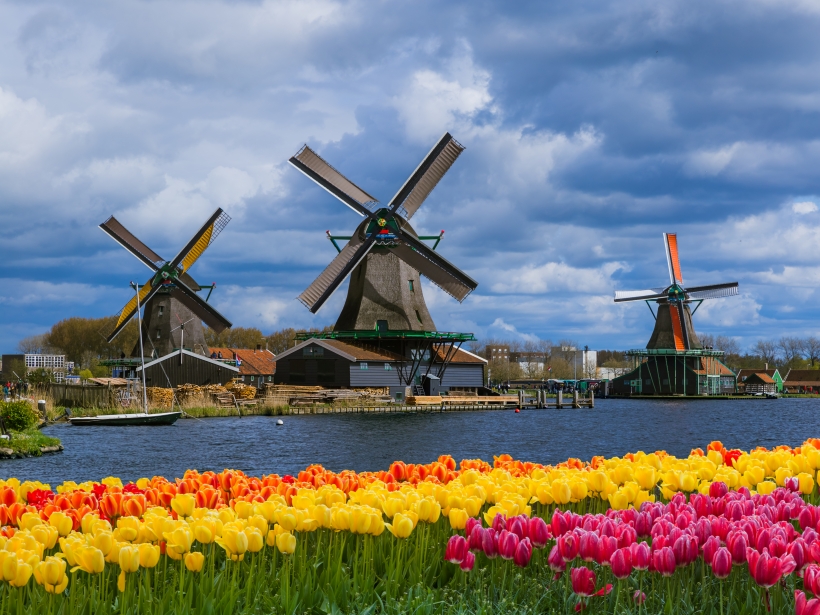
Quality of Life
The tolerant and liberal society of the Netherlands makes it one of the best countries to live in the world. Back in 2001, it became the first-ever country to legalize same-sex marriages, and national stances on abortion, euthanasia, and drugs are liberal.
Cost of Living
Living expenses in the Netherlands can vary depending on the region and lifestyle. According to recent reports, the average cost of rent for a single person in the Netherlands, excluding monthly expenses, is around $980. However, if you’re looking for a one-bedroom apartment in the city center, you can expect to pay around $1,270. Other factors, such as food, transportation, and entertainment expenses can also add up. Despite the high costs, the Netherlands offers a high quality of life with quality healthcare, education, and public services.
Healthcare
The country offers universal healthcare but everyone working or living in the Netherlands needs to have basic health insurance. Basic health insurance is affordable, and in most cases, the employers pay a small percentage of it.
Education
Between the ages five and 16, education is compulsory for all. Though both public and private institutions exist, the latter is mainly for ideological and religious principles. The education system is pretty advanced at all levels in the Netherlands.
Netherlands: Quality of Life Attributes
| Score over 100 | |
| A good job market | 49 |
| Affordable | 3.2 |
| Economically stable | 89.5 |
| Family-friendly | 92.6 |
| Income equality | 70 |
| Politically stable | 97.1 |
| Safe | 90.5 |
| Public education system | 92.8 |
| Public health system | 93.2 |
8. Finland
The culture and history of Finland are defined by geography as it is one of the most northern-reaching nations in the world. It is bordered by the Gulf of Bothnia and the Baltic Sea, along with Russia, Sweden, and Norway. The extended stretches of open land act as a gateway between East and West.
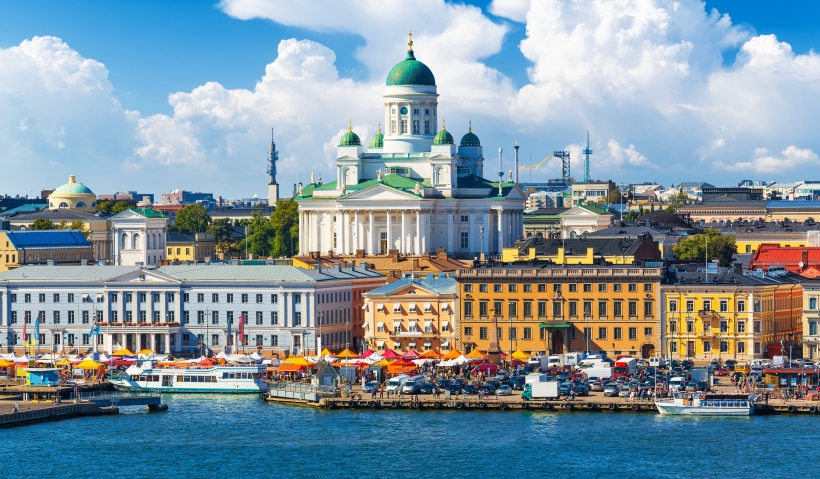
Quality of Life
The economy of the country is mainly focused on free-market capitalism, which focuses most of its spending on public services and social safety. The workforce of the country has historically been connected to the land, though now they have moved towards rapid industrialization. The standard of living is very high.
Cost of Living
Finland has a reputation for its considerably high cost of living, with Helsinki being one of the most expensive cities in the country. The cost of living in Finland can vary depending on the individual’s lifestyle and location. Rent for a single-bedroom apartment in the city center is around $865, while rent-excluded monthly expenses for a single person are around $940. Groceries, transportation, and leisure activities can also add up quickly. Despite the high cost of living, Finland is also renowned for its high standard of living, excellent public services, and social welfare programs.
Healthcare
The well-structured healthcare system of Finland is at least one hundred years old. The country is focused more on disease prevention and offers the facilities of universal healthcare. The free healthcare system means no one has to ever suffer from medical costs.
Education
Finland has the greatest education system in the world, according to the Global Competitiveness Study conducted by the World Economic Forum. Finland’s educational system aims to stress equal educational possibilities, providing every student with the fundamental life skills and core knowledge of key disciplines while also allowing them the freedom to experiment, explore, and follow their passions in later stages.
Finland: Quality of Life Attributes
| Score over 100 | |
| A good job market | 93.2 |
| Affordable | 1.7 |
| Economically stable | 100 |
| Family-friendly | 51.8 |
| Income equality | 47 |
| Politically stable | 91.4 |
| Safe | 71.3 |
| Public education system | 97.5 |
| Public health system | 98.1 |
| Score over 100 | |
| A good job market | 37.5 |
| Affordable | 1.9 |
| Economically stable | 82.8 |
| Family-friendly | 90.4 |
| Income equality | 74.8 |
| Politically stable | 90.1 |
| Safe | 94.7 |
| Public education system | 92.1 |
| Public health system | 88.4 |
9. Germany
Germany, one of the largest economies in the world, is the most populous nation of the European Union. Ever since its reunification, its role in the international arena has grown steadily. The country is situated in Central Europe and its landscape changes from the Bavarian Alps in the south to the plains in the North.
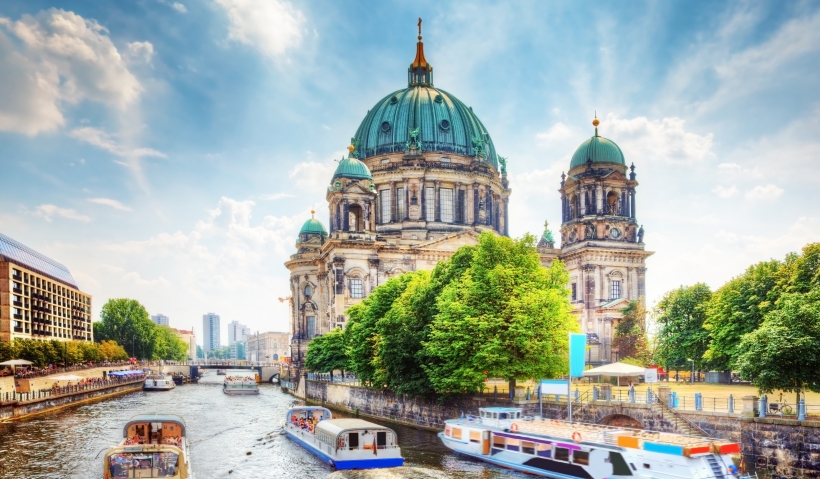
Quality of Life
It is one of the top countries to live in when it comes to quality of life. Germany spends a significant amount on social services for its aging population. It also has an open-door policy that makes the nation attractive to migrants.
Cost of Living
The cost of living in Germany is not constant throughout the country and depends on the lifestyle of the individual. Nonetheless, it is generally regarded as not being very cheap. Monthly expenses for a single person are approximately $940, excluding rent. Rent constitutes another significant expense, with a single-bedroom apartment located in the city center costing about $910 per month. Germany has an excellent social welfare system, including healthcare, education, and public transportation, which altogether can help counterbalance some of the costs.
Healthcare
Statutory contributions have made healthcare free for all in Germany. Additionally, you are allowed to take private health insurance to top up or replace state help.
Education
Basic education is highly valued in the country as all residents should compulsorily receive primary and secondary education, starting from age of six. The top universities of the country draw students from neighboring countries and beyond.
Germany: Quality of Life Attributes
10. New Zealand
The final name on this list of countries with the best quality of life is New Zealand. The beautiful island nation is scenic and peaceful and is the perfect place to settle down with your family. The country has progressed impressively in the decades following its independence and now has a respectable position in the world.
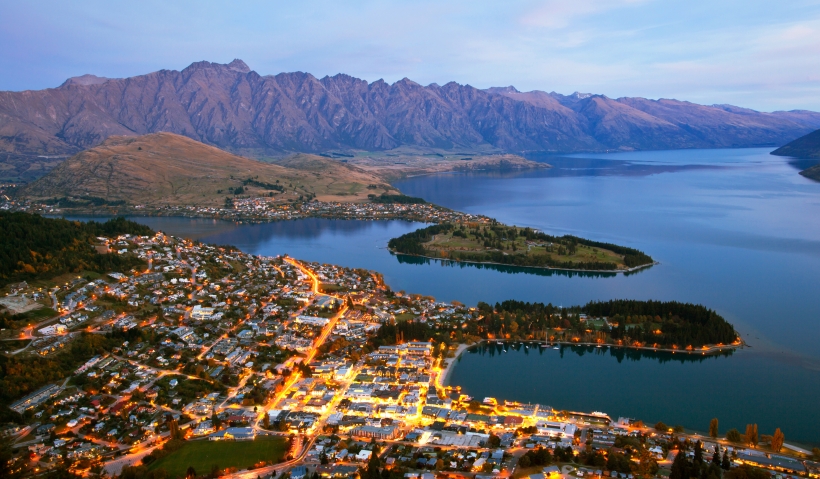
Quality of Life
The country wins full marks for offering a safe and stable environment to its residents. Though the progress of the nation is still ongoing, there is no denying it has come a long way since its independence. The standard of living is pretty high, and New Zealand is not the most affordable place to live in.
Cost of Living
The cost of living in New Zealand can vary depending on the city and region. Generally speaking, it’s considered to be quite high compared to other countries. Monthly expenses can amount to approximately $960 for a single person, including groceries, transportation, and other basic necessities. Rent for a one-bedroom apartment in the city center can cost around $1,120, while outside the city center, it can be somewhat lower. It’s worth noting that these prices are just rough estimates and may differ depending on various factors.
Healthcare
The publicly funded delivery system has helped New Zealand achieve universal health coverage. When it comes to medical infrastructure and patient-centric care, the country has always scored high points.
Education
The eight universities of New Zealand are ranked among the top 500 in the world. Moreover, it has one of the finest qualities of education among the OECD nations. As per the law, education is mandatory for students from six to 16 years.
New Zealand: Quality of Life Attributes
| Score over 100 | |
| A good job market | 50.6 |
| Affordable | 4.3 |
| Economically stable | 88.9 |
| Family-friendly | 97.5 |
| Income equality | 54.7 |
| Politically stable | 93.1 |
| Safe | 95.9 |
| Public education system | 84.3 |
| Public health system | 80 |
The Endnote on Countries With Best Quality of Life
So, if you have been seeking a better quality of life, healthcare, education, and more, these are some of the best countries to live in. These nations have stood out from the rest due to the consistent and effective progression towards a better tomorrow.
Source: US News & World Report



